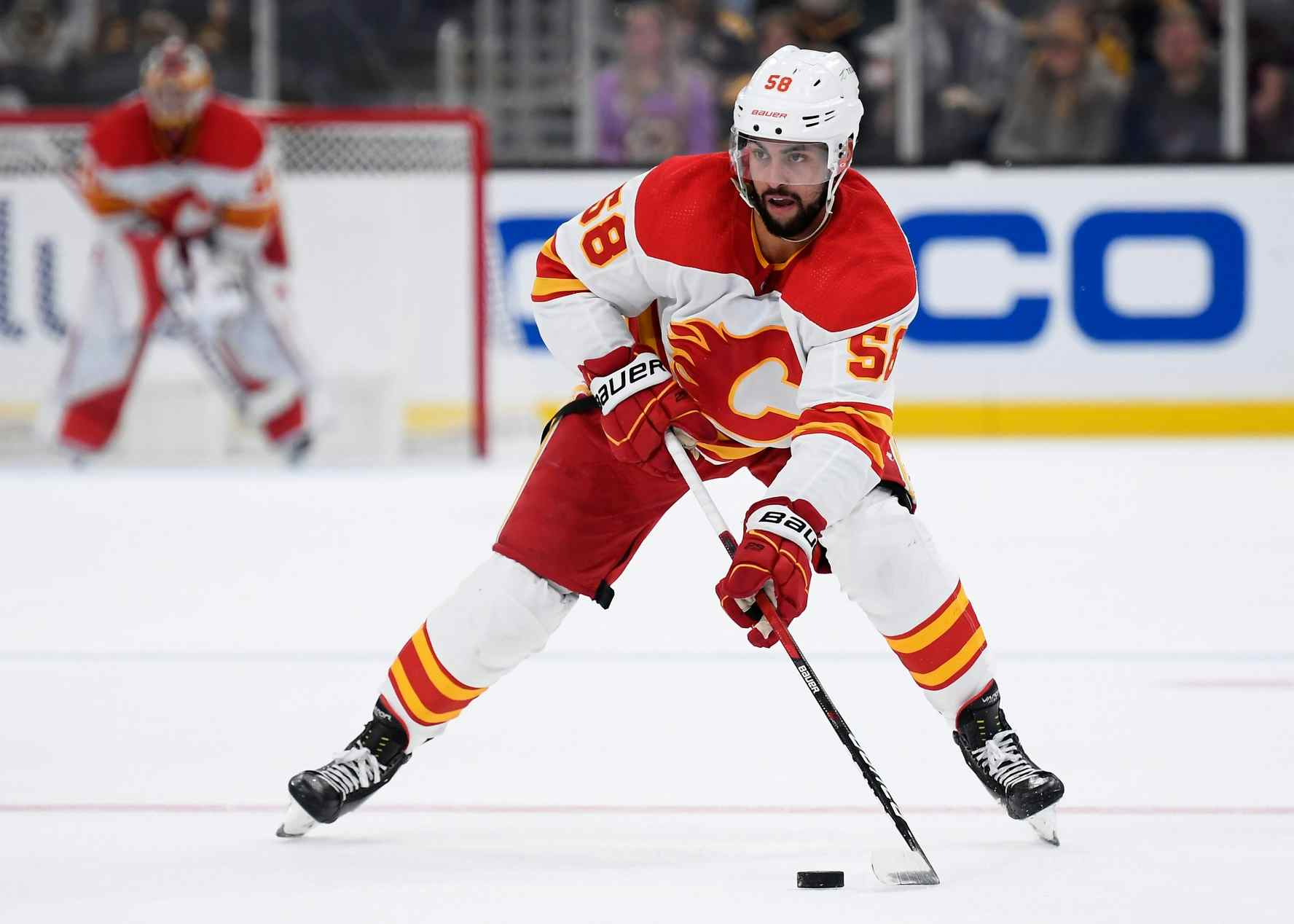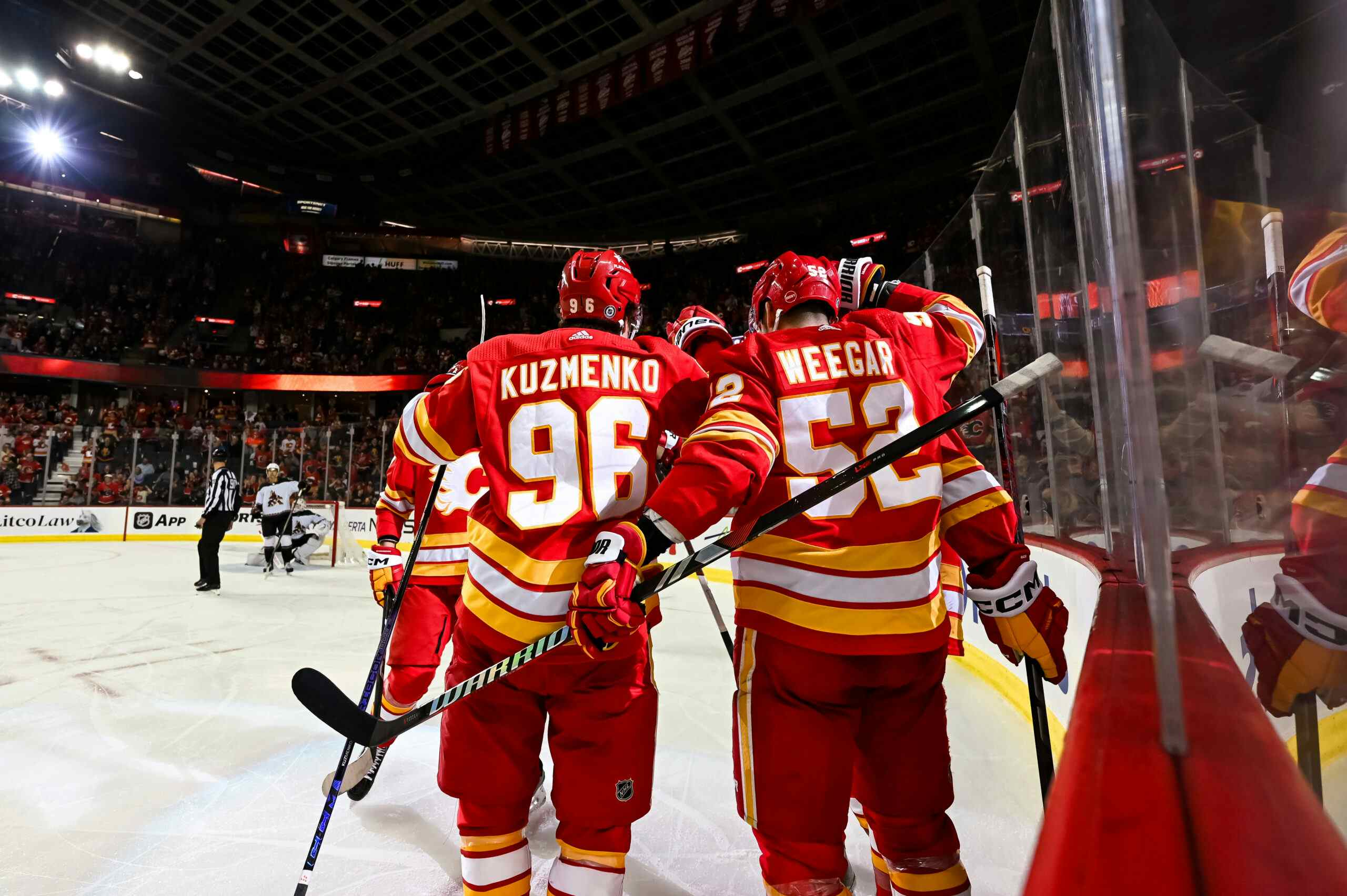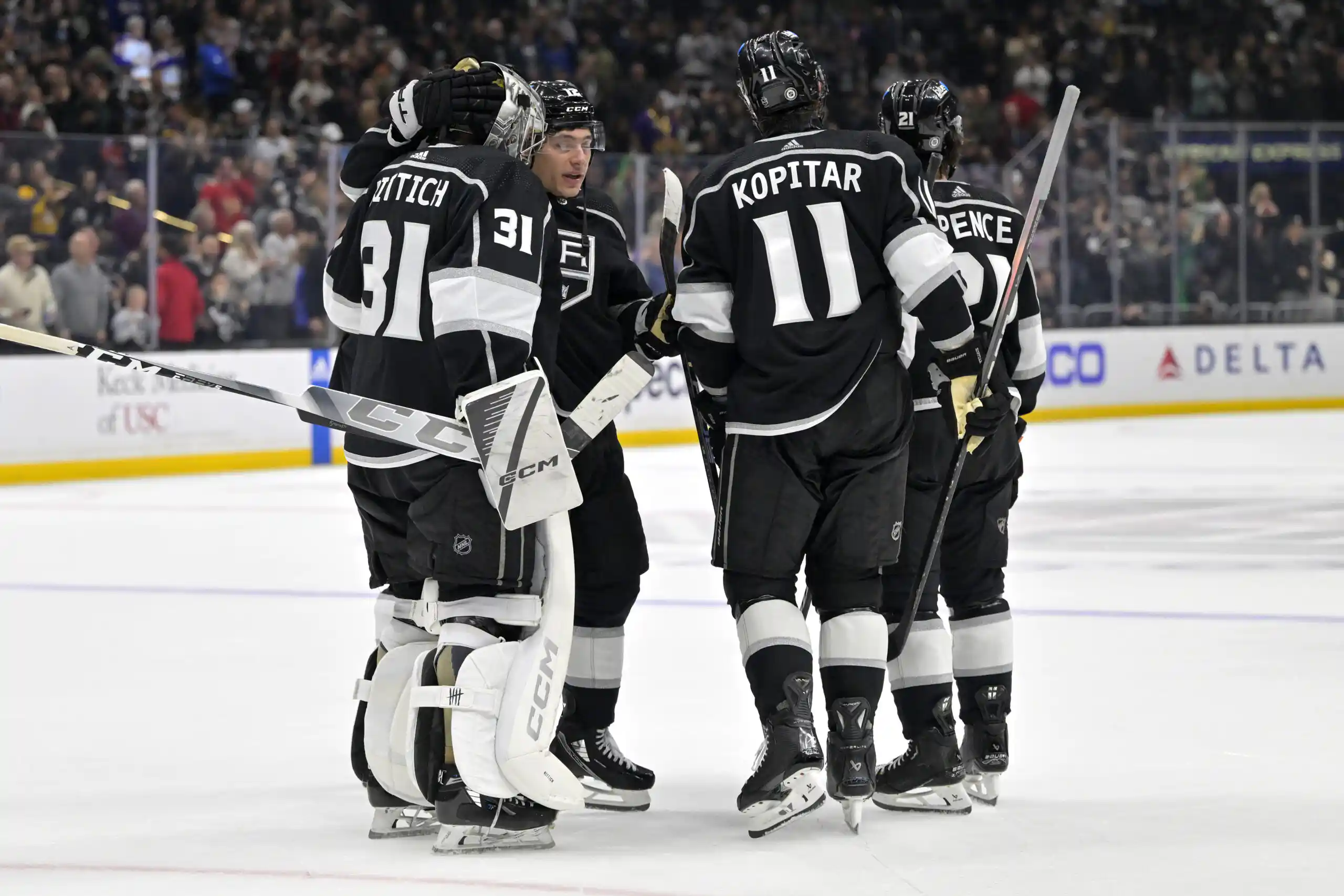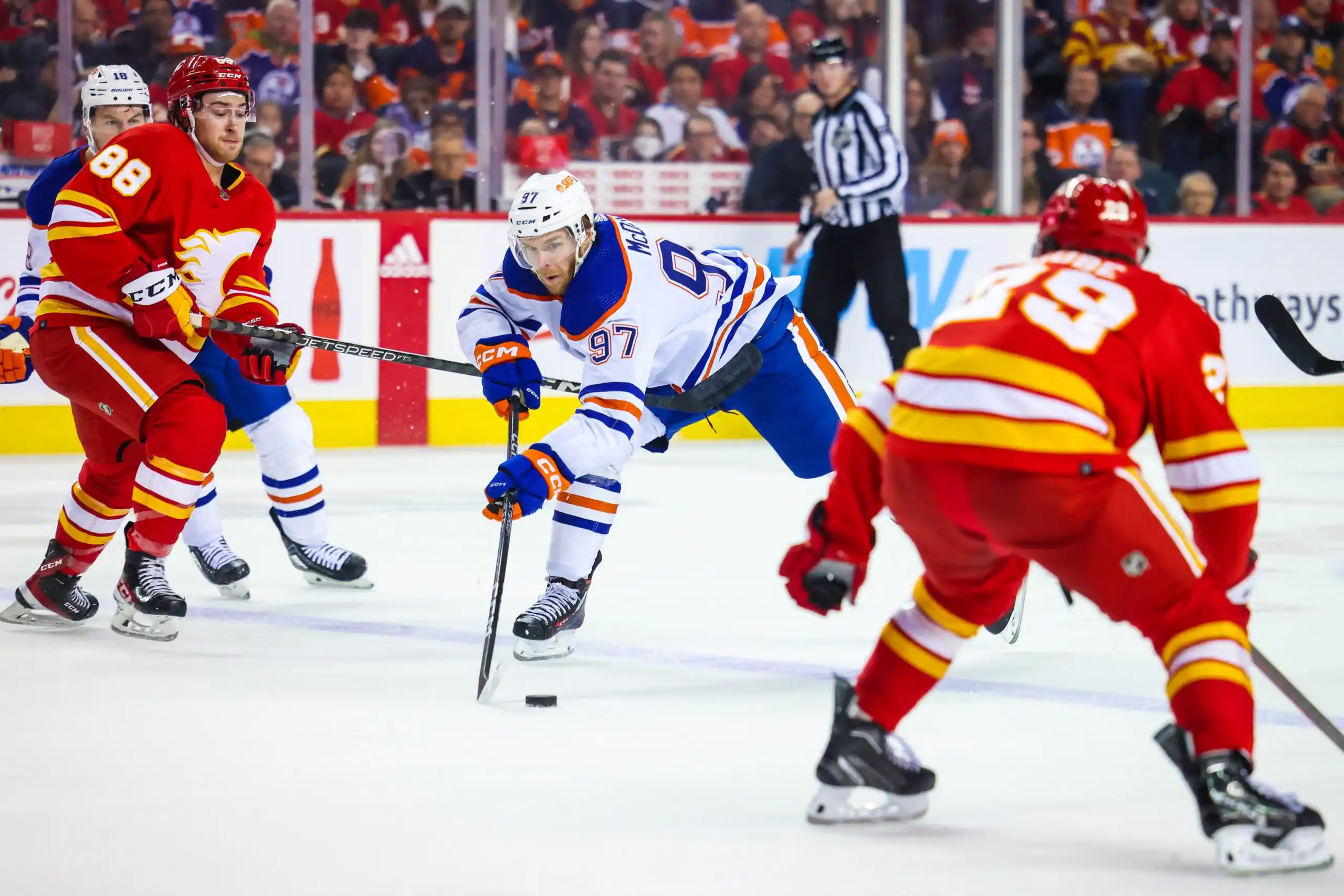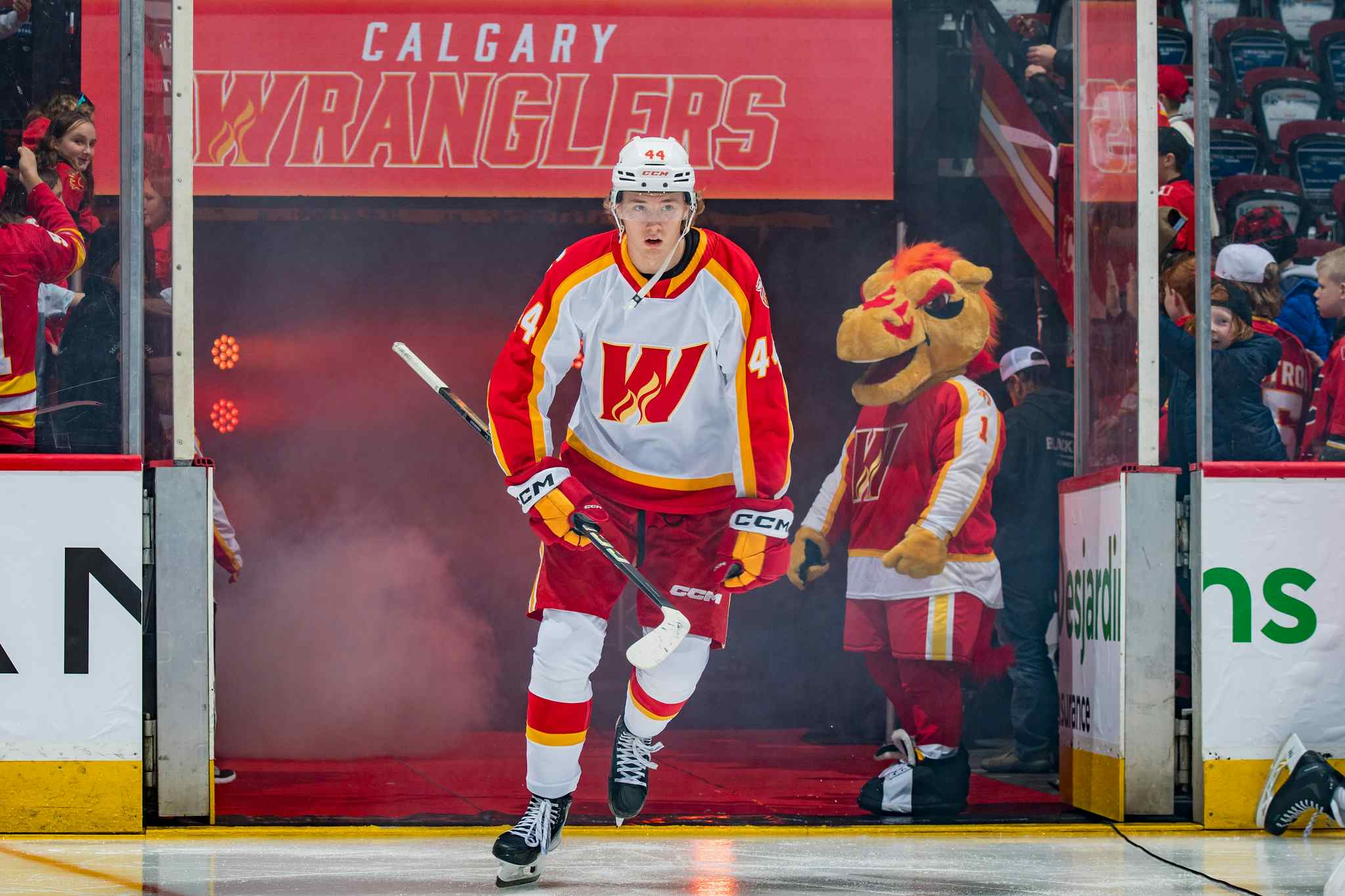5 things: Danger
By Ryan Lambert
9 years ago
1. You got me!!!!
So the Flames made the playoffs and Flames fans immediately started giving me stick about it.
Can’t say I blame ’em, of course, because I spent the whole season basically beating a dead horse about how the team isn’t good — it’s not, by the way — and how the club would falter. It did not falter, and fans see this as a validation that they, in rooting for the team for arbitrary reasons, were correct in their analysis (“I think they’re good because I like them”) while the naysayers were wrong in theirs (“I’ve looked at a lot of data and they’re not good”).
And that strikes me as not being very problematic. Fans can believe whatever they want. Some probably believe Deryk Engelland is good, and no amount of stat-highlighting is going to convince them that they are wrong, even if they are. Which they would be if they believed that. It’s fine. Your team made the playoffs. Feel great about it if you want.
2. The real concern
Again, fans can believe what they want because fans have no real impact on the future of the franchise, except if they, like, all stop buying tickets simultaneously because they disagree with certain decisions. But it doesn’t work like that, obviously, so again: No real power.
But what if Brian Burke and Brad Treliving believe the same BS things about this team that the fans and media covering it have been spouting all season long?
“They win because they work hard.”
“They’re a really close group of good guys.”
“They’re hard to play against.”
And so on. Read any Flames Nation comment section from the past six months and you’ll hear the same drivel over and over. And if Burke and Treliving believe it, there’s a really good chance they could derail what should be seen as a decent bridge season to actual competitive hockey in two or three years.
There’s a perception, for example, that the Flames are young. But they are not particularly young at only the 10th-lowest average age, behind a number of actual playoff teams like Tampa (fourth), Ottawa (fifth), Winnipeg (seventh), and Long Island (eighth). They are older than the Kings as well. And were I a Flames fan, my concern would be that the management might feel the need to mix in a little more veteran leadership, toughness, and so on as a means of preserving this playoff spot which it must be recognized was only attained by the skin of the team’s teeth.
The teams to which I’ve compared the Flames to all season are the 2012-13 Maple Leafs, and the 2013-14 Avalanche, because all three carried some of the worst possession numbers in the league but PDOed their way into playoff positions; some higher than others.
Then those predecessor teams believed their own hype, and doubled down on veteran talent who could “take the team to the next level.” Jarome Iginla, Brad Stuart, David Clarkson, etc. High-price guys on multi-year deals who didn’t make the impact they were paid to make, and were frankly never going to.
Now, the Flames could not-pursue those kinds of players and then the only harm this high-PDO season did was screw them out of a potential high pick. But they might also pursue them, and I think there ought to be legitimate concern about how non-zero the chance is here.
3. How realistic is that?
The good news is that the Flames do seem committed to their burgeoning youth movement, which should help to limit the number of awful contracts they give out this summer (of course, that didn’t stop them last year), and moreover they really don’t have very many holes in the roster to fill. That’s good news, unless they’re shopping on the trade market as well, to upgrade in a few places.
And to be fair, they badly need upgrades if they’re even going to come close to replicating the kind of perceived success — in terms of wins and losses, not actual on-ice performance; almost 29 percent of their wins this season were in the coin-flip OT or shootouts — they had this year. Some of that is going to come from the improvement of the young players on the roster, but more will have to come from the older guys.
I don’t think anyone’s job is or should be on the line if the Flames are once again down in the bottom sixth of the league, because that’s what they should have been this year. Barring any significant changes, this still isn’t really much of a playoff roster. And that’s not going to change unless the veterans they bring in are HFBoards-level pipe dreams, like, PK Subban, John Tavares, and so on.
That’s not to say there aren’t value players on the market, because the free agent cattle call is still deeply inefficient (because of contracts like Engelland’s) the team could scoop up guys — relatively cheap and maybe not for a lot of years — who can start driving possession forward. Those players are getting more expensive because the league is largely wising up, but they’re still out there if you know where to look.
And I’m not sure Burke and Treliving do. Very little in their last offseason indicates this is the case. I’d say only Raymond and Hiller fit that description, but Setoguchi was at least a decent gamble that didn’t work out.
4. What to expect when you’re expecting another playoff berth
Now, a lot of the argument you hear about the team making it next year is that the young players will improve. That’s probably true. But the question is, will they improve enough to make up the ground the veteran guys are probably going to lose, at least in terms of producing the goals necessary to do so.
That is to say, can we reasonably expect, say, Johnny Gaudreau and Sean Monahan to top 60 points again? Yes. Can we expect them to top 70? Maybe 80? That would elevate them to a level that very few players reach (only 19 guys netted 70 this year, and basically all of them are All-Stars). I’d guess that there’s almost as much of a chance that they crack 70 as there is that they drop back down to 50 or 55 — which isn’t necessarily a knock on them; it’s really hard to score 60 points in the NHL at any age, let alone 20 or 21 years old, and particularly if they carried high shooting percentages, which they did — so it’s tough to say for sure where the top line’s production goes.
And also, with regard to that top line, try to keep in mind, too, that it provided pretty much all the offense this season; you have to drop down to Lance Bouma’s 34 points before you find another forward on the team’s scoring list. That’s from Monahan’s impressive 62. It’s a huge decline.
So of course, a lot of the offense also came from the defense, which is something that can’t reasonably count on either. TJ Brodie and Mark Giordano (if he can stay healthy)? Okay, sure, those guys are going to score, because they’re elite defensemen. But the rest? I’m not so sure.
The Flames defense shot 6.25 percent this season as a unit (45 goals on 720 shots). That may not sound high, but you have to keep in mind that these are shots coming from low-percentage areas. The league average for D shooting was 5.13 percent, meaning the Flames were about 22 percent more effective in shooting from the blue line than the rest of the defensemen in the league. Some teams were higher than that, actually (Anaheim, Dallas, Columbus, Montreal, and Nashville), but of that group only Nashville and Calgary relied on D to score more than 19 percent of the team’s total goals.
I think there are interesting parallels to be drawn between Weber/Josi and Giordano/Brodie, but the former combined for 30 of the Predators D’s 55 goals, compared with 22 of 45 for the latter. Counting on Dennis Wideman to score 15 again is unwise. For the Flames, the extra five or six goals Wideman scored above what he would normally put out was probably enough to secure the playoff spot. That’s not an exaggeration.
So what the Flames need this summer is to acquire guys who can actually put the puck in the net reliably and also drive play. Only then will they have any legitimate chance of doubling down on this year’s run.
Who are those guys, would the team value them, and would they want to sign in Calgary? Those are questions for after the playoffs.
5. Have fun out there
With that being said, getting into the playoffs is, in its way, an accomplishment. Again, it’s not a validation, but rather a reward for being that good/lucky (mostly lucky) when overtime rolled around, while the Kings were very much not.
And the good news is Vancouver is actually not very good either, so it’s totally possible that the Flames continue to get lucky and advance. But be warned: picking playoff winners based upon nothing but score-adjusted possession in the past 25 games will mean you’re right about 75 percent of the time. Any guesses who between Calgary and Vancouver controlled the puck more over the last 25 games?
Recent articles from Ryan Lambert

